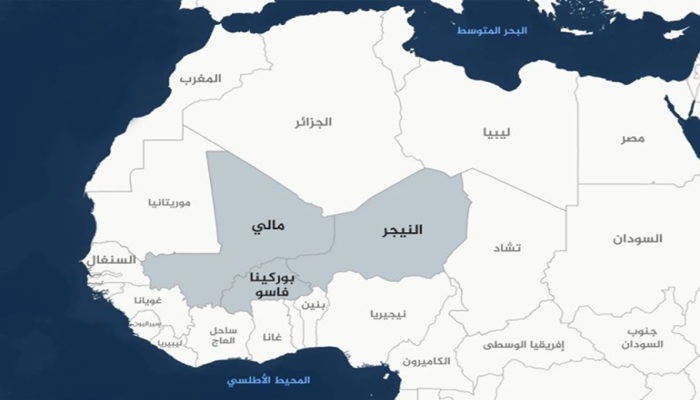
Afrasianet - Mali's March 18th announcement to withdraw from the International Organization of la Francophonie, a day after a similar announcement by Nigerand Burkina Faso, raised questions about the decline of French influence in Africa, especially among Sahel states.
Mali justified its withdrawal on the grounds that the organization's conduct was contrary to the principles of the State's financial sovereignty. While other States felt that the OSCE had not helped Mali achieve the aspirations of its people and had imposed selective sanctions on it, it had also withdrawn for reasons of sovereignty, which military Governments placed as their top priority to consolidate their rule.
The withdrawal statements published by the three countries reflect what appears to be a final rupture between them and the Francophonie Organization, which may foreshadow a rupture with France that mediates between seriousness and the mere threat of symbolic steps, which was discussed by Mohamed Ben Mustapha Sankari in an analytical paper published by the Al Jazeera Center for Studies entitled "The departure of the Confederation of Sahel States to the Organization of la Francophonie: Backgrounds and Consequences."
A first step to a rupture with France
The International Organization of la Francophonie was founded on March 20, 1970 in Niamey, the capital of Niger, at the initiative of 3 African presidents, namely the President of Niger, Hamani Diori, the President of Senegal, Léopold Sédar Senghor, and the President of Tunisia, Habib Bourguiba, and the aim of strengthening cooperation between French-speaking countries, and today it has more than 50 members, and 27 observer countries.
The Union of Sahel States considers that the International Organization of la Francophonie has applied selective sanctions since the political transformations in the three countries following successive military coups, and the leaders of these countries regretted that the organization ignored the sovereignty of their countries after 55 years of contributing to its construction and strengthening its activity.
Behind what the Sahel states considered an encroachment on sovereignty is a tangible desire to be free from all symbols of French colonialism after the evacuation of French forces, and even European and American forces.
Sahel states consider France a party to their national problems, accusing it of still draining its wealth, supporting its autocrats and openly siding with governments in their fight against terrorism, but supporting it in secret.
What's after the withdrawal?
For Niger, which hosted the founding congress of la Francophonie, its withdrawal represents, albeit symbolically, a great loss for la Francophonie as a founding member of the organization. Since the July 26, 2023 coup, relations with France have deteriorated and Niamey's membership in the organization has been suspended, until its formal withdrawal last March.
The spokesman for the organization described the decision to withdraw as "regrettable" and expressed the organization's readiness to continue cooperation between it and the Nigerien people, saying, "We have projects there, should we deprive the Nigerien people of them because of the withdrawal?" , adding that the organization cares about Francophone communities even in non-member countries.
Mali and Burkina Faso are also founding countries of the organization and have contributed to its prosperity over the past years, but they share the same reasons for leaving the organization of la Francophonie and the same anti-French approach towards rapprochement with Russia.
The economic area of the Francophone Organization amounts to 16% of the world's GDP, according to the organization's reports for 2022, and it has approximately 15% of the world's energy and mineral resources.
OIC member States often share common characteristics such as colonial history, trade ties and legal practices that can facilitate trade exchanges and investments between them.
The negative impact of the withdrawal of Sahel countries may be reflected in the decline in the use of French as an official or educational language in favor of local languages such as Bambara and Fulani, but logistical difficulties may prevent this.
The withdrawing Sahel countries may suffer from a sharp decline in the financial and technical support provided by the organization in the fields of culture and education, whether in the form of scholarships, teacher training programs, or programs to develop the sectors of the national archives or museums, which could lead to the migration of intellectuals or artists who rely on the Francophonie to other countries.
In conclusion, the consequences of withdrawing from la Francophonie seem mixed: positive in terms of strengthening local identity and cultural sovereignty and reducing dependence on France, but requiring massive domestic investment to fill the vacuum that may result.

